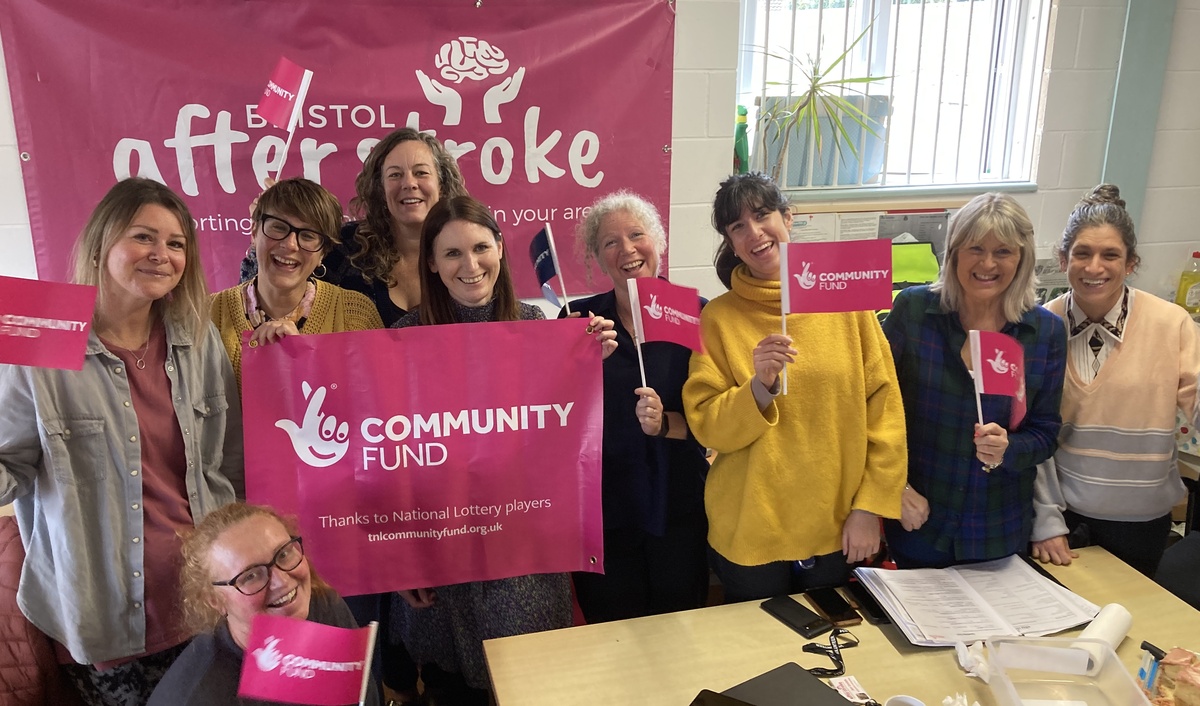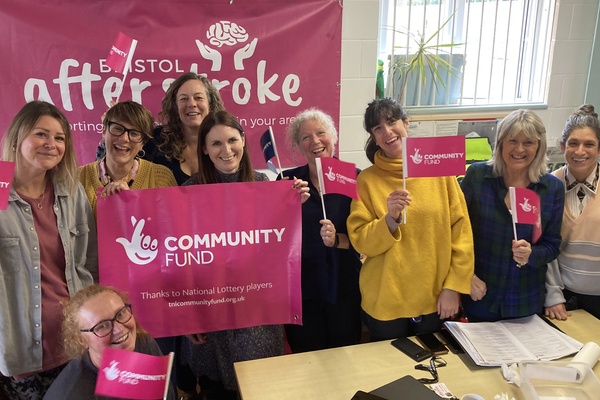
A pioneering project to support stroke-affected people in the Bristol area in their recovery journey is being made possible with £20,000 funding from the National Lottery.
Coming to terms with the psychological impacts can be one of the biggest challenges for a stroke-affected person, and this project will match volunteers who are further along in their stroke journey together with people who have more recently been diagnosed.
The mentors’ role will be to provide support and guidance, making use of the fact that are likely to have faced similar challenges and barriers to those being experienced by their mentee.
“Within Bristol After Stroke we already have dozens of volunteers who have shared their experiences over the years, in a positive and empathetic way, and we know this approach can really work,” says the charity’s CEO Rebecca Sheehey.
“We also ran a pilot project funded by Sirona Care & Health and run in collaboration with The Peer Partnership… and had a phenomenal response from the 24 people who took part. In the words of one ‘mentee’, ‘I can't fault the doctors and nurses at the hospital but what I needed was to talk and be heard and to be reassured that everything I was experiencing and feeling was normal.’”
The project aims to support people to reach their full potential in their recovery at the right time for them.
“Peer mentoring,” adds Rebecca, “offers a unique and bespoke intervention to support people to become more aware of their capabilities and strengths, develop confidence and a greater sense of resilience and self-belief.”
The charity now hopes to be able to help many more stroke-affected people in the Bristol and South Gloucestershire area over the next two years as a result of the Lottery funding.
The funding will provide professional training to volunteers who can then be assigned mentees to provide support for up to 12 sessions.
There are also hopes that the lessons learned over the coming months can be shared, and make a difference, nationally.
The matching process that Bristol After Stroke will apply will mean that mentors can be matched to someone from a similar background, type of stroke, or other characteristics that are seen as important to the mentee.
For both the mentor and mentee it allows them to feel that they are not alone and are part of a larger support network within which they have value.
“In all we do,” concludes Rebecca, “we harness the experience, enthusiasm and energy of people whom we have helped in the past. This not only makes the support services we provide user-designed and driven, but means that every pound we raise in donations, legacies and sponsorship goes a very long way.”





